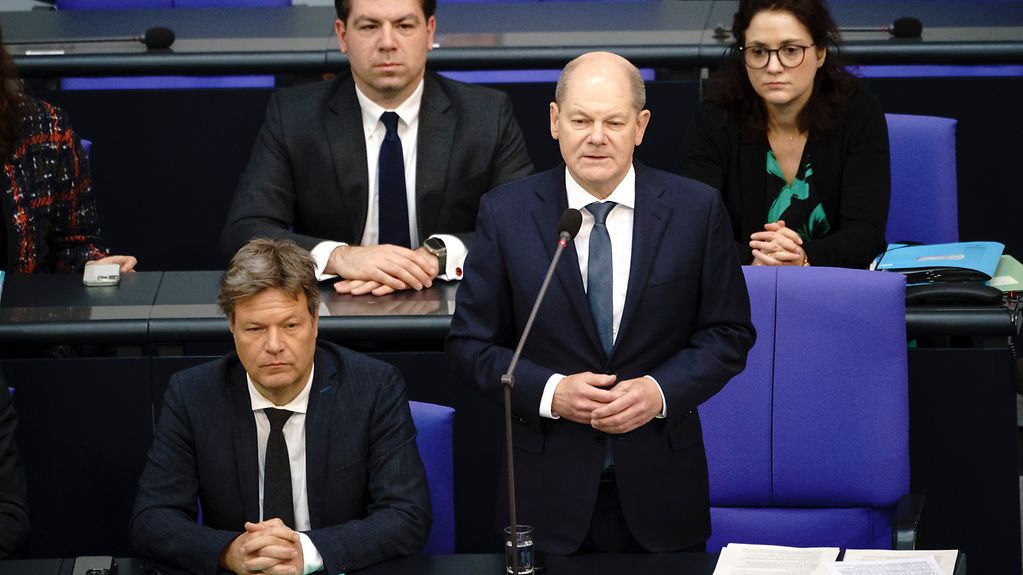Government question time
The Federal Government wants to modernise the country and to continue the reform programme which has been introduced. Its priorities include the transport and energy networks and the climate transition. How exactly will this be done? This is what Federal Chancellor Scholz talked about in a government question time session in the Bundestag.
2 min reading time

Federal Chancellor Scholz during government question time in the Bundestag: “We will find targeted and pragmatic solutions.”
Photo: Federal Government/Kugler
The Federal Government has already significantly shortened the processes that allow for wind power plants to be built more rapidly in Germany and for ailing motorway bridges to be replaced swiftly. Ahead of the coalition committee meeting on 28 March, Federal Chancellor Olaf Scholz announced a number of measures: “We are going to speed up infrastructure development in Germany.” He pointed out that this included rail, traffic and energy networks. “Things will happen more swiftly in Germany in future,” said Scholz during a government question time session in the German Bundestag.
Nobody is left alone
To be able to realise the climate transition, the Federal Government was relying on pragmatic, targeted solutions for promoting energy efficiency of buildings and with regard to the related challenges for citizens. “Nobody is left to cope with their problems on their own, but everybody will be enabled to do what has to be done,” Scholz said, adding that the goal remained for Germany to become climate-neutral. He described the difference between then and now as follows: “We are speeding things up and all of these tasks are pursued in a target-oriented manner. The stagnancy of recent decades is now a thing of the past.”
Increasing employment, supporting skilled workers
Scholz explained that it was key to train young people to become skilled workers, to increase employment of women and to provide options for workers to obtain qualifications while continuing full-time employment. This was why the Federal Cabinet had initiated a modern Skilled Workers Immigration Act and an Advanced Training Act, he said.
Scholz pointed out that it was important for our future that those we need and who wish to pull their weight in Germany choose to come here. However, to be able to attract talent from abroad to pursue careers in Germany, it was necessary for procedures to become less bureaucratic and for the labour market to be more appealing and competitive, he continued.
Further proposed reforms
Scholz stressed that modernisation and progress in Germany required further reforms, and added that this also included to proposed basic child allowance – a joint project of the coalition government. “We still have some major reform projects ahead of us.”